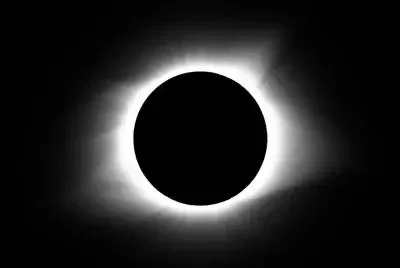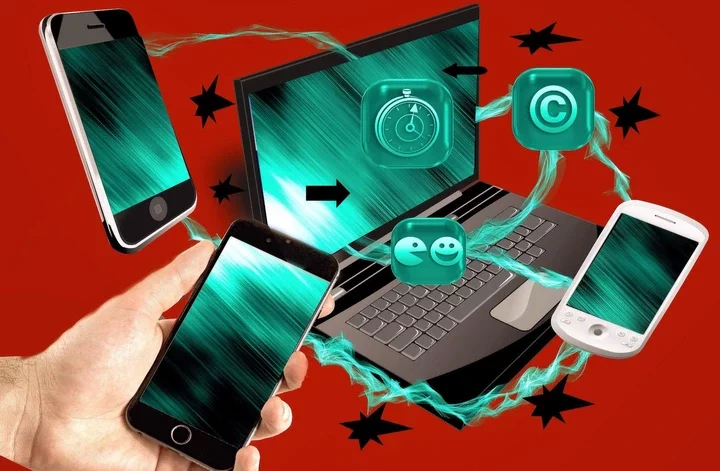
As the total solar eclipse is going to happen on April 8, 2024, in North America, Nigerians living in Mexico, the United States (US), and Canada, are enjoined to take note of certain things to avoid.
The total solar eclipse will begin over the South Pacific Ocean, which will occur when the moon passes between the sun and the earth, blocking out the sun's light partially or entirely.
The solar eclipse has always been seen as an important celestial event and has thrilled human beings for centuries.
A solar eclipse happens when the moon, in its orbit around the Earth, places itself directly between the Earth and the Sun.
Meanwhile, as the United States, Canada, and Mexico prepare for the solar eclipse, there are precautions for the people who will experience it including Nigerians residing in these North American countries.
A report said, "The Monday, April 8, 2024, a total solar eclipse will cross North America, passing over Mexico, the United States, and Canada. The total solar eclipse will begin over the South Pacific Ocean.
"Weather permitting, the first location in continental North America that will experience totality is Mexico's Pacific coast at around 11:07 a.m. PDT. The path of the eclipse continues from Mexico, entering the United States in Texas, and traveling through Oklahoma, Arkansas, Missouri, Illinois, Kentucky, Indiana, Ohio, Pennsylvania, New York, Vermont, New Hampshire, and Maine.
"Small parts of Tennessee and Michigan will also experience the total solar eclipse. The eclipse will enter Canada in Southern Ontario, and continue through Quebec, New Brunswick, Prince Edward Island, and Cape Breton. The eclipse will exit continental North America on the Atlantic coast of Newfoundland, Canada, at 5:16 p.m. NDT."
Meanwhile, below are the things to do and not do during an eclipse in the US, Canada, and Mexico:
Use eye protection
Staring directly at the sun, even during an eclipse, can cause permanent eye damage. People to experience it are advised to use specially designed solar viewing glasses or handheld solar viewers to protect their eyes from harmful rays.
Take care of your pets
While humans now have access to abundant information, animals may become confused or agitated during an eclipse due to the sudden change in light. So, Nigerians in the United States, Canada, and Mexico, are enjoined to keep their pets indoors or in a secure location to prevent them from harming themselves or running away.
Take photographs with safety
If you have decided to capture the eclipse with your camera or your smartphone, make sure to take proper precautions with that too. Make sure you have a solar filter to protect your device's lens and your eyes. Never look directly at the sun through a camera or binoculars without appropriate filters.
Enjoy the moment
A solar eclipse is a rare and awe-inspiring event. And so if your thoughts and beliefs allow you to, take the time to appreciate this beauty of nature and the wonders of the universe, but with proper protection.
What to NOT do during the eclipse
Don't look directly at the sun
Citizens and foreigners like Nigerians in the US, Mexico, and Canada should not look directly at the sun during the total eclipse. Myths, beliefs and superstitions apart, staring at the sun during an eclipse, even for a few seconds, can cause severe eye damage or blindness. Always use proper eye protection or indirect viewing methods.
Don't use unfiltered devices
Seeing the eclipse through smartphones, cameras, or telescopes without adequate solar filters can result in irreversible damage to the equipment and pose a risk to your eyesight as well. So, make sure to have the right equipment.
Don't look for do-it-yourself options
While it is tempting to explore and experiment, try not to when your eyesight and your camera or other device are at stake. Homemade filters, such as smoked glass, CDs, or sunglasses, are not safe for viewing a solar eclipse and these makeshift filters do not provide sufficient protection from the sun's harmful rays.
Don't panic
Although there are many different myths and beliefs associated with the Solar eclipse, in the age of information, it is better to not panic. There is no need to panic or fear during an eclipse. As long as you follow certain safety guidelines and stay informed, no harm can happen due to the moon blocking the sun.













![Ranked! Top 10 goalkeepers in the world [2025] Ranked! Top 10 goalkeepers in the world [2025]](https://static.netnaija.com/i/vWaq3ZoWKrk.webp)




Comments